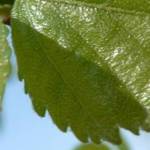Since the 1970’s, environmental and natural resource law has become a popular area of legal studies worldwide. As the number of governmental and non-governmental organizations concerned with environmental issues has increased dramatically over the past two decades, so has the demand for lawyers with extensive knowledge of environmental law.
“Environmental law is a pervasive influence in virtually any kind of business or legal transaction these days,” says Jan Laitos, professor of law and director of the Environmental and Natural Resources Law Program at the University of Denver Sturm College of Law. “Graduates of LL.M. programs, such as ours here at DU, have found jobs all over the world – with businesses, law firms, and governments.”
Many students who take a specialized LL.M. program in environmental law can go on to work as private practice lawyers, policymakers, advisers, or teachers in various fields of environmental law, including sustainability, natural resources management, government regulation, and environmental protection.
Several law schools around the world now offer specialized postgraduate programs focused specifically on environmental law. These include the LL.M. degrees offered by the University of Denver, University of Oregon, University of Sydney, Vermont Law School, University of London, George Washington University, University of Auckland, and the University of Kent. A number of highly specialized programs, such as the University of Dundee - Centre for Energy, Petroleum and Mineral Law and Policy (CEPMLP), are also available to interested lawyers.
Add these programs to the many other law schools around the world that now offer individual courses and concentrations in environmental law as part of their LL.M. programs, and we see a field of law that is clearly growing. When environmental law is the concentration of a law school or program, students can expect a broad selection of courses ranging from the general to the specific.
At Lewis & Clark Law School, for example, both LL.M. and J.D. students in the Environmental Law and Natural Resources program can choose from over forty classes and seminars that cover general and international subjects like international environmental law, environmental regulation, and environmental litigation, as well as more specific courses, such as those focusing on Pacific Salmon law, Northwest energy law, and the Clean Air Act.
“The beauty of an LLM is that students spend one year fully immersed in the field of environmental law,” says Janice Weis, director and assistant dean of the Environmental and Natural Resources Law Program at Lewis & Clark. “This intensive course of study prepares students well for a variety of practice areas. It provides a “big picture” or broad context for the field, in hand with focused study on the most important and cutting-edge issues – an invaluable perspective for a future environmental lawyer.”
Many law schools also try to find an effective balance in the scope of their programs between local and international environmental issues. Professor William Howarth, who directs the Environmental Law and Policy program at Kent Law School in Canterbury, U.K., considers both local and international perspectives to be important.
“Probably the main emphasis of [our] programme is upon national and European Community environmental law, but in many respects this needs to be placed in a wider international context,” says Howarth.
Professors within the field are confident that the importance of environmental law will not diminish in the coming years. In fact, as long as environmental issues continue to snatch media headlines and attract serious attention from governments around the world, it seems logical that knowledge of environmental affairs will continue to be a valuable asset for lawyers on the international job market.
“I believe the demand for competent and talented environmental lawyers will continue to rise, and therefore the demand for environmental LLMs,” says Professor Weis. “In addition there are a myriad of new issues that arise all the time that require legal expertise, including natural disasters, global pollution, ecosystem management, land use planning, international conservation of species and environmental law.”
“The field of environmental law will continue to expand to meet modern needs and views.”
Photo: JimW-Sustainability 76 / Creative Commons (cropped)










